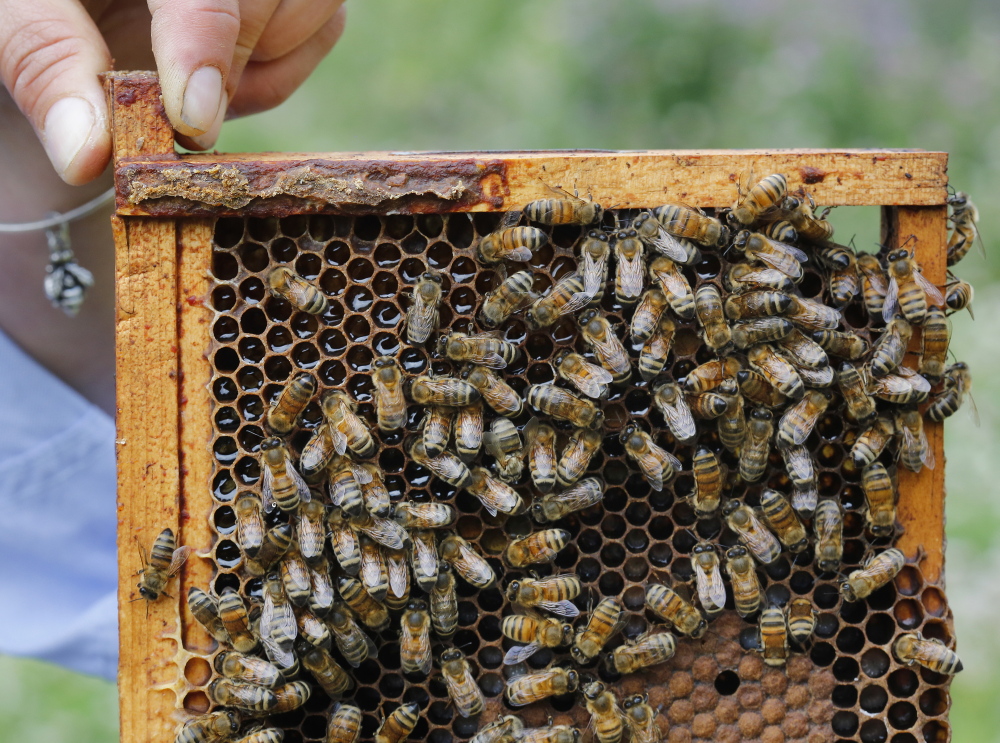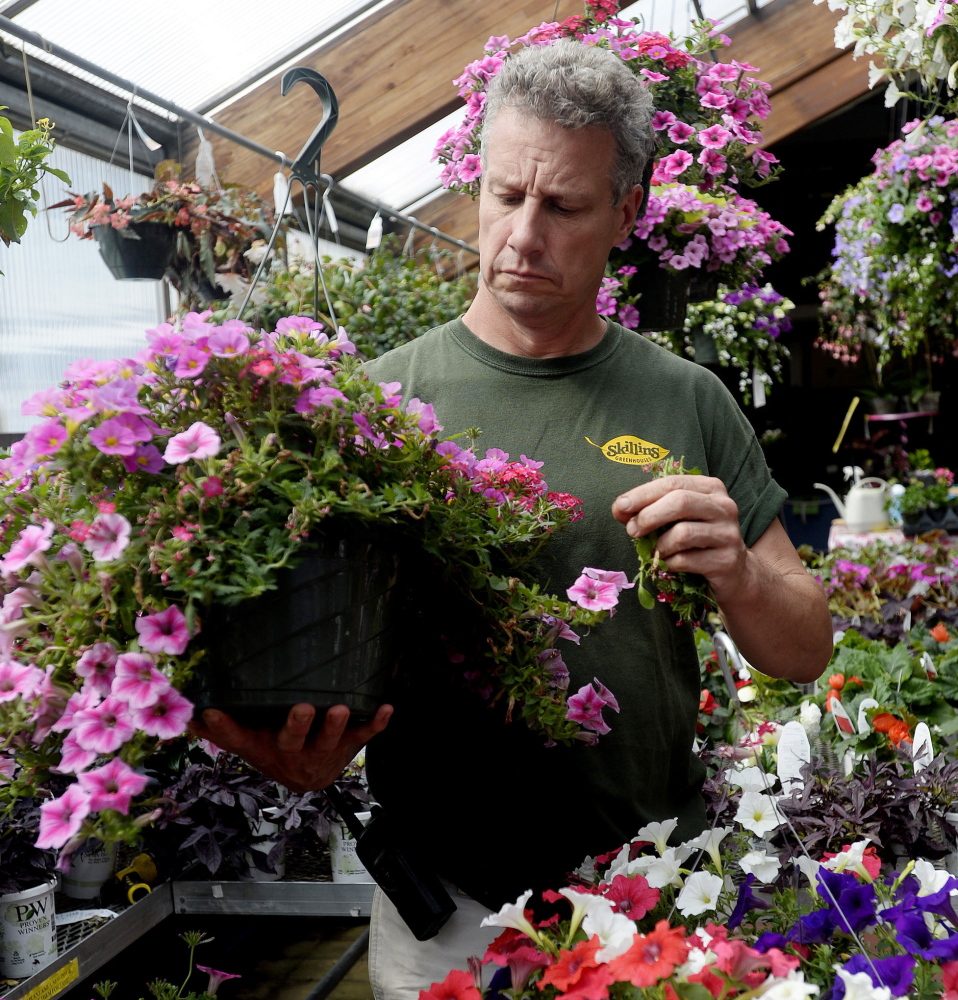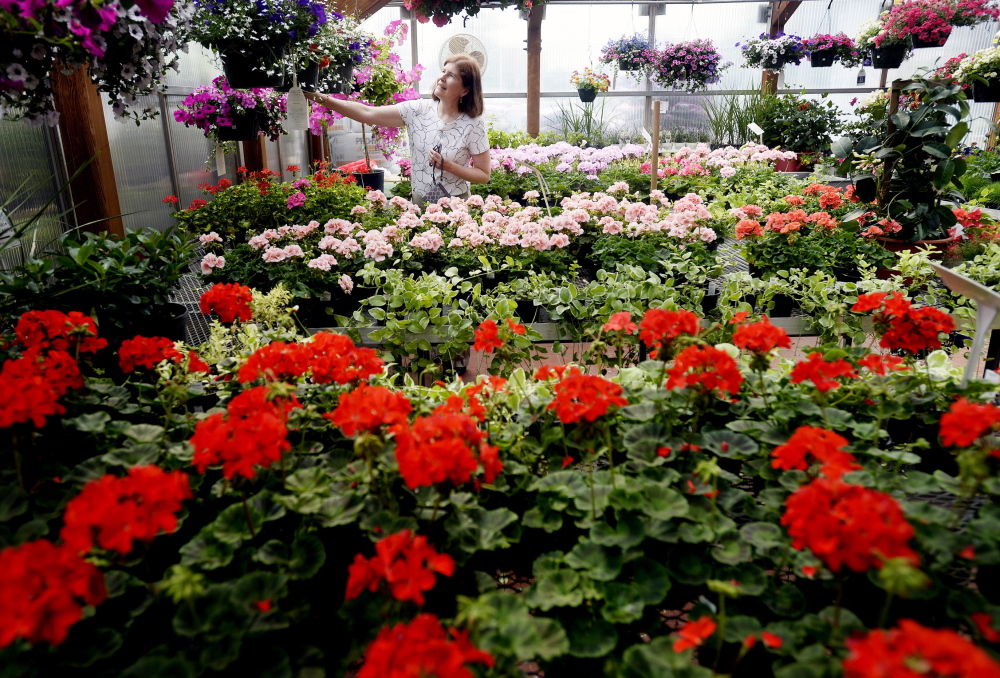Plants from big-box stores in Maine that were tested in a national study contained neonicotinoids, a class of pesticides that has been linked to rising numbers of deaths of bees across the globe, an environmental advocacy group reported Wednesday.
Friends of the Earth said more than half of the garden plant samples – many marketed as bee-friendly and sold by large retailers in 18 cities, including Portland – contained neonicotinoid pesticides.
The widely used insecticides have come under scrutiny in recent years, particularly in connection with colony collapse disorder and rising mortality of bees and other pollinators, said Katherine Paul of the Organic Consumers Association, one of more than 20 environmental and public interest organizations that joined in the study with Friends of the Earth.
Of the four plant samples purchased in Portland, three contained neonicotinoid pesticides, also known as neonics, Paul said. Forty percent of the positive samples collected nationwide contained two or more neonics, she said.
Some of the flowers tested contained levels high enough to kill bees outright, said Charlotte Warren, communications and media consultant for the Organic Consumers Association.
Environmentalists, beekeepers and organic growers gathered Wednesday at The Honey Exchange on Stevens Avenue in Portland and called on three major retail chains – Wal-Mart, Lowe’s and Home Depot – to phase out neonicotinoid insecticides, or at least make sure they are clearly labeled so that consumers can choose alternative pest control measures for home gardens.
They applauded a fourth national retailer, BJ’s Wholesale Club, which they said announced Wednesday that its more than 200 stores in 15 states would remove plants with neonicotinoids from their stock by the end of 2014 or require clear labeling of any plants pretreated with the pesticides.
The announcement could not be verified. Calls to the retailer’s corporate offices were not returned.
Neonicotinoid pesticides disrupt insects’ central nervous systems, causing paralysis and death. They are toxic to bees and other pollinators, according to the Environmental Protection Agency and several recent studies.
Neonics have been the focus of several studies in the past year, as scientists and beekeepers try to discover the connection between the widespread deaths of bees and other pollinators – including butterflies, moths, other insects and birds – and commonly used nicotinoid pesticides, including Imidacloprid, marketed under such trade names Merit, Advantage and Admire.
A Harvard University study in May focused on the collapse of honeybee colonies and supported the conclusion that even sub-lethal exposure to neonicotinoids is probably the main factor in colony collapse disorder.
While entomologists and biologists have focused on neonics, anecdotal evidence suggests the public might not know how prevalent the pesticides are in greenhouse flowers and nursery stock, or the potential effects of introducing plants pretreated with neonicotinoids into their home gardens.
“People have no idea,” said Chad Churchill, nursery manager at Highland Avenue Greenhouse in Scarborough, which has eliminated the use of the pesticides.
“We’re being very careful,” said Mike Skillin, co-owner and manager of the Falmouth branch of Skillin’s Greenhouses. None of Skillin’s three locations uses neonics, he said, and organic alternatives are separated from chemical and synthetic pesticides so that customers know what they’re choosing.
It’s not clear whether the uproar over neonics has reached the average home gardener.
Jane Mullen of Portland, who shopped at Skillin’s in Falmouth on Wednesday, said she was not familiar with the issue. Upon learning about the nature and perceived risk of neonics, she said would pay more attention when making purchases.
“The bees are important … which I didn’t know 10 years ago,” said Mullen, who found the notion of pretreating plants and soil with potent pesticides akin to “GMOs in food,” referring to genetically modified ingredients.
Hannah Renyi and her 3-year-old daughter, Emma, came from their home in Cumberland to Skillin’s. Renyi was unaware of the possibility that the potting soil she was looking for could have neonic residue.
Robert King of Portland, a retired biologist and a photographer who has specialized in images of butterflies, said he has noticed the number of pollinators falling.
“Neonics are killing at the base of the terrestrial food chain,” said King, who attended the news conference Wednesday.
“There are no butterflies in Portland,” he said, and he has seen only one this year, near the Falmouth town line.
“It’s neonics,” he said. “Homeowners are using it all around. It’s the new DDT.”
Amanda Manna, corporate public relations manager for Lowe’s, said in response to questions about the company’s greenhouse and nursery stock, “we’re very concerned about bee health.”
The company has 1,800 stores nationwide, and some of its products do contain neonicotinoids, Manna said. “But we offer a range of choices,” she said.
Manna said Lowe’s does not separate classes of pesticides or label organic, pesticide-free choices, but relies on consumers to read EPA guidelines and labeling information on packaging.
Lowe’s, based in Mooresville, N.C., buys its greenhouse and nursery stock from vendors across the U.S., Manna said. Suppliers are expected to follow all EPA guidelines for the use of any pesticide or herbicide, she said.
Lowe’s does not have a specific strategy regarding neonics, but it has been studying the growing debate over the pesticides for at least a year, Manna said.
Lowe’s has added a position, described as national director of sustainability, to provide ongoing review of the debate and new information about neonics.
No comparable posts exist currently in local stores, she said.
Wal-Mart would not comment on the Friends of the Earth study’s findings, and calls to Home Depot’s corporate media consultants were not returned Wednesday.
Send questions/comments to the editors.





Success. Please wait for the page to reload. If the page does not reload within 5 seconds, please refresh the page.
Enter your email and password to access comments.
Hi, to comment on stories you must . This profile is in addition to your subscription and website login.
Already have a commenting profile? .
Invalid username/password.
Please check your email to confirm and complete your registration.
Only subscribers are eligible to post comments. Please subscribe or login first for digital access. Here’s why.
Use the form below to reset your password. When you've submitted your account email, we will send an email with a reset code.